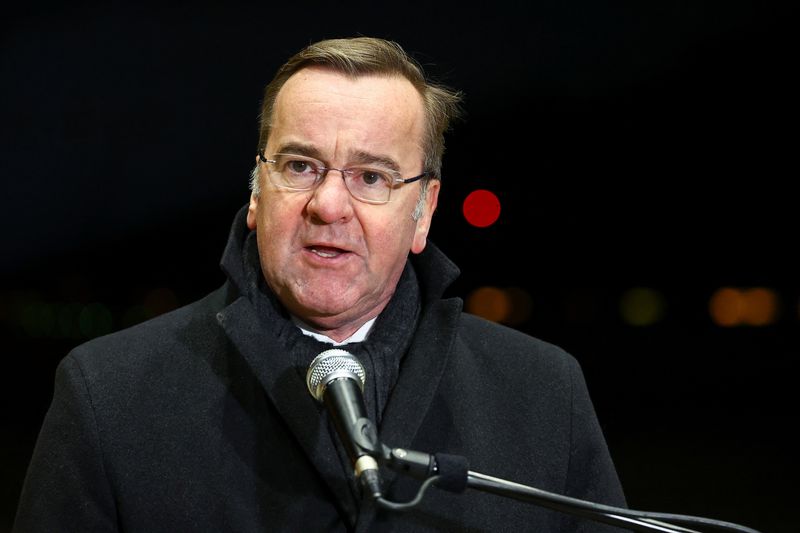BERLIN (Reuters) - Europe must race to ensure it can better defend itself as new military threats could emerge by the end of the decade even as the focus of security ally the United States shifts towards the Indo-Pacfic, Germany's defense minister said.
Russia was hiking its weapons production considerably to sustain its invasion of Ukraine, while also threatening the Baltic states, Georgia and Moldova, Boris Pistorius was quoted as saying in an interview with Welt am Sonntag.
Meanwhile the United States will likely reduce its military engagement in Europe as it turns more towards the Indo-Pacfic.
"We Europeans must engage more to ensure security on our own continent," said Pistorius, noting however it would take time for the region to increase its own weapons production.
"We have about 5-8 years to catch up, in terms of armed forces, industry and society," he said.
Europe is clear it may also need to compensate for U.S. aid for Ukraine if Washington fails to agree new funding, he added.
The election of a more Europe-friendly government in Poland should now enable the Weimar Triangle of Berlin, Paris and Warsaw to develop more their military cooperation, he added.
"We need to figure out how best to set ourselves up on the eastern flank on the basis of NATO defense plans," he said, noting he wanted to travel as soon as possible to Poland next year.
Pistorius said he did not foresee for the time being the German army repeating missions as big as those they carried out in Afghanistan and Mali.
It was in Afghanistan that Germany's military fought the first ground battles since the end of World War Two.

"But small missions, in particular in the area of military consultancy or cooperation also with countries that do not necessarily share our values will be essential," he said.
"The alternative would be to not have any more contacts with these countries and to simply hand them over to the Russians and Chinese, and that would be a lot ore dangerous."